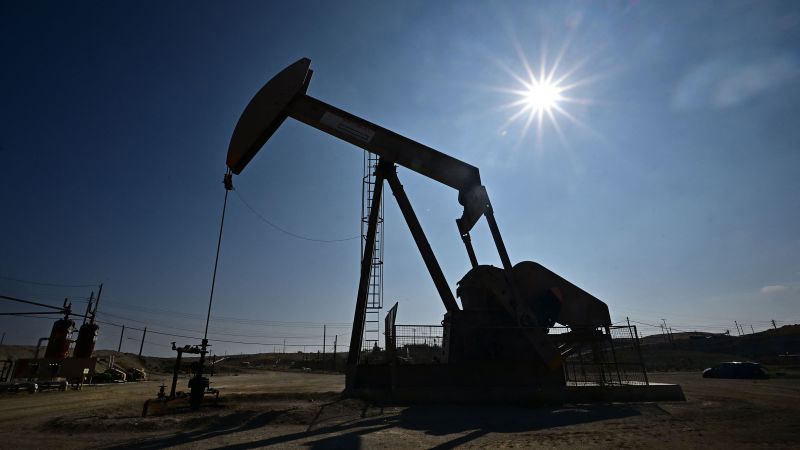Oil prices initially rose due to reported explosions near Isfahan, Iran, but later dropped as tensions in the Middle East were downplayed. Following an Israeli military strike inside Iran, oil prices fluctuated. Israeli Prime Minister Benjamin Netanyahu stated that Israel would make its own decisions in response to recent Iranian airstrikes. The fear of a wider conflict in the region has driven oil prices up by about 15% this year.
The main concern in the oil market is the potential disruption of shipping through the Strait of Hormuz, a vital waterway for global oil trade. While Iran exports most of its oil to China, any reduction in Iranian exports could significantly impact the global market. The United States has imposed sanctions on Venezuela’s oil industry, which could disrupt exports. Mexico has also announced a reduction in oil exports due to domestic demand.
Other markets reacted strongly to the Middle East conflict, with gold prices increasing and stock markets in Asia closing lower. However, the market impact lessened as reports suggested that the recent attack on Iran was limited in scope. European stock markets were trading slightly lower, while Israel’s benchmark index remained flat. S&P Global Ratings lowered Israel’s sovereign credit rating due to increased geopolitical risks stemming from the conflict with Hamas and tension with Iran.
Analysts predict that a wider regional conflict will likely be avoided, but the conflicts with Hamas and Hezbollah are expected to continue. S&P analysts suggested that the Israel-Hamas war and confrontation with Iran-backed Hezbollah could persist throughout 2024. Hamas had launched an attack on Israel in October, resulting in casualties and hostages. The ongoing conflicts in the region contribute to geopolitical uncertainty and impact financial markets.
Despite the initial market turbulence, European stock markets stabilized, indicating a more measured response to the Middle East tensions. As the situation in the region evolves, market participants will continue to monitor geopolitical developments for any potential impact on oil prices and global markets. The conflict between Israel, Iran, and other regional actors adds to the existing geopolitical risks in the Middle East, creating uncertainty for investors and policymakers. The interplay between political tensions and economic factors will remain a key consideration for market participants in the coming months.













